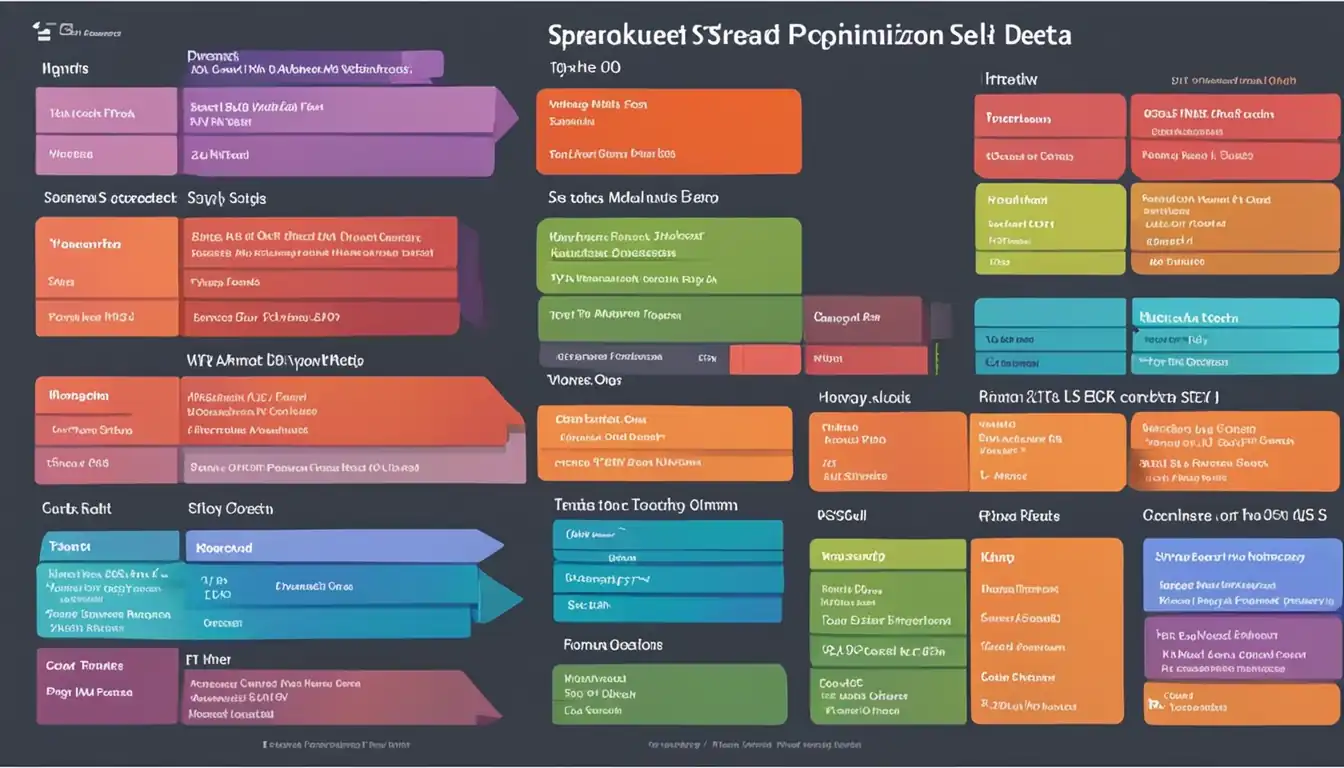Unlocking the Power of Structured Data Markup for Enhanced SEO

In the vast world of SEO, structured data markup is like the secret sauce that can take your website from good to great. By providing search engines with clear and organized information about your content, you can unlock a whole new level of visibility and understanding. So, if you're ready to dive into the world of structured data markup and supercharge your SEO efforts, keep on reading!
What is Structured Data Markup

Structured data markup is a way of organizing and categorizing the content on a webpage using specific tags and attributes. This markup helps search engines understand the context of the content, making it easier for them to display relevant information in search results.
Basics of Structured Data
Structured data markup is implemented using standardized formats such as JSON-LD, Microdata, and RDFa. These formats allow webmasters to add additional information about their content, such as product details, reviews, events, and more.
Importance in SEO
Structured data markup plays a crucial role in enhancing SEO efforts by providing search engines with more detailed information about the content on a webpage. This helps search engines better understand the relevance of the content and can lead to higher visibility in search results.
Implementing structured data markup can also result in rich snippets being displayed in search results, which can improve click-through rates and drive more traffic to your website.
Types of Structured Data Formats

Structured data markup comes in various formats, each with its own advantages and use cases. Here are the most common types of structured data formats used for enhancing SEO:
JSON-LD
JSON-LD, which stands for JavaScript Object Notation for Linked Data, is a popular choice for implementing structured data on websites. It is easy to implement and recommended by Google for structured data markup. JSON-LD allows webmasters to include structured data directly within the HTML code of a webpage, making it easier for search engines to understand the content and context of the page.
Microdata and RDFa
Microdata and RDFa are two other formats used for adding structured data to web pages. While they are not as widely supported as JSON-LD, they can still be effective in improving SEO. Microdata uses HTML tags to define specific types of information on a webpage, while RDFa (Resource Description Framework in Attributes) embeds metadata within HTML documents using special attributes.
In conclusion, choosing the right structured data format depends on your website's needs and technical capabilities. Experimenting with different formats can help you unlock the power of structured data markup for enhanced SEO performance.
How to Implement Structured Data on Your Website
Structured data markup is a powerful tool that can greatly enhance your website's SEO performance. By implementing structured data, you can provide search engines with more context about your content, making it easier for them to understand and index your pages. Here's how you can implement structured data on your website:
Tools You Need to Get Started
Before you start implementing structured data on your website, there are a few tools that you will need:
Google's Structured Data Markup Helper: This tool allows you to easily add structured data markup to your web pages by highlighting the relevant elements and generating the necessary code.
Schema.org: Schema.org is a collaborative project between Google, Bing, Yahoo!, and Yandex that provides a standard vocabulary for adding structured data markup to web pages.
JSON-LD Generator: JSON-LD is a popular format for encoding linked data in a way that is easy for search engines to understand. A JSON-LD generator can help you create the necessary code for adding structured data to your website.
Step-by-Step Implementation Guide
Now that you have the necessary tools, here is a step-by-step guide to implementing structured data on your website:
Identify the Content You Want to Markup: Start by identifying the content on your website that would benefit from structured data markup. This could include products, events, recipes, articles, and more.
Choose the Right Schema Type: Once you have identified the content you want to markup, choose the appropriate schema type from Schema.org. There are hundreds of schema types available, so make sure to select the one that best fits your content.
Add Structured Data Markup Using Google's Structured Data Markup Helper: Use Google's Structured Data Markup Helper to add structured data markup to your web pages. Simply highlight the relevant elements on your page and generate the necessary code.
Test Your Markup Using Google's Structured Data Testing Tool: After adding structured data markup to your web pages, use Google's Structured Data Testing Tool to ensure that it has been implemented correctly and is being recognized by search engines.
Monitor Performance and Make Adjustments: Keep an eye on how implementing structured data affects your website's SEO performance. If necessary, make adjustments to improve results.
By following these steps and utilizing the right tools, you can unlock the power of structured data markup for enhanced SEO on your website.
Benefits of Using Structured Data Markup
Structured data markup offers numerous benefits for enhancing SEO efforts. Here are some key advantages:
Boosting Search Engine Visibility
Utilizing structured data markup can significantly improve your website's visibility on search engine results pages (SERPs). By providing search engines with clear and organized information about your content, you make it easier for them to understand and index your pages effectively. This can lead to higher rankings and increased visibility for relevant search queries.
Enhancing Content Understanding for Search Engines
Structured data markup helps search engines better understand the context and meaning of your content. By adding specific tags and attributes to your HTML code, you provide additional information about elements such as products, events, recipes, and more. This enhanced understanding allows search engines to display rich snippets in search results, providing users with more detailed information before they even click on a link.
Incorporating structured data markup into your SEO strategy can have a significant impact on your website's performance in organic search results. It not only boosts visibility but also enhances the overall user experience by providing more relevant and informative search results.
Common Mistakes and How to Avoid Them

Overusing or Misusing Markup
One common mistake that many website owners make when implementing structured data markup is overusing or misusing it. While structured data can greatly enhance SEO, using too much markup can actually have a negative impact on your site's performance.
To avoid overusing or misusing markup:
- Only use the necessary markup for the content on your page.
- Stick to the recommended guidelines provided by search engines.
- Avoid adding irrelevant markup just for the sake of including more data.
Neglecting Testing and Validation
Another mistake to avoid is neglecting testing and validation of your structured data markup. Without proper testing, you may not realize if there are any errors in your markup that could be affecting how search engines interpret your content.
To ensure your structured data is properly implemented:
- Use tools like Google's Structured Data Testing Tool to check for errors.
- Validate your markup with the Schema.org validator to ensure it follows the correct syntax.
- Regularly monitor and update your structured data as needed to maintain its accuracy and effectiveness.
By following these best practices, you can avoid common mistakes when implementing structured data markup and maximize its benefits for enhanced SEO.
Conclusion
Structured data markup may seem like a complex puzzle at first, but once you understand its power and how to implement it effectively, the benefits for your website's SEO are undeniable. By avoiding common mistakes and following best practices, you can ensure that search engines not only find but also truly understand and appreciate the value of your content. So go ahead, unleash the power of structured data markup and watch your search engine rankings soar!